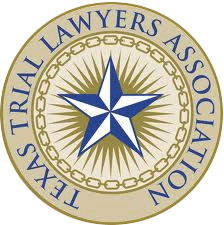When navigating the legal complexities of personal injury cases in Texas, the presence of certain key elements can dramatically influence the outcome. Among the most significant of these elements is the testimony and participation of individuals with specialized knowledge. These individuals possess a deep understanding of particular fields or subjects that are often critical to the case. This knowledge allows them to provide insights that help clarify complex matters for the court, aiding both judges and juries in making informed decisions. Their involvement can often mean the difference between success and failure in a personal injury claim.








Understanding the role of individuals with specialized knowledge in Texas personal injury cases is essential. These individuals are called upon to provide testimony in a variety of personal injury matters, ranging from car accidents and medical malpractice to premises liability and workplace injuries. Their testimony is used to explain aspects of a case that may be beyond the understanding of a layperson. This testimony can cover a wide range of topics, including the extent of injuries, causation, the standard of care in professional settings, and the future implications of an injury.
In personal injury cases, both plaintiffs and defendants may call upon individuals with specialized knowledge to strengthen their arguments. The role of these individuals is to present facts and opinions that assist the court in reaching a fair and just outcome. While the plaintiff typically bears the burden of proof, the defendant may also use this type of testimony to dispute claims or counter the evidence presented by the plaintiff.
How Specialized Knowledge is Applied in Personal Injury Cases
The role of individuals with specialized knowledge can be pivotal in determining the outcome of personal injury litigation. In Texas, as in other states, personal injury cases often involve highly technical or scientific issues that require explanation. For instance, in cases involving complex medical conditions or intricate details of a car accident, the testimony of a professional with deep knowledge of the subject matter can shed light on aspects of the case that would otherwise remain unclear.

Protecting Your Rights
These individuals are often brought in to provide testimony that clarifies the extent of injuries sustained by the plaintiff. They may describe how the injuries occurred and explain the long-term consequences of those injuries. Their testimony can also provide insight into whether or not the injuries were caused by the defendant’s actions. In some instances, they are asked to testify regarding the expected medical treatment and costs associated with the plaintiff’s recovery. This type of testimony can be essential in calculating the compensation that the plaintiff is entitled to receive.
Moreover, in cases involving professional negligence, such as medical malpractice, the standard of care becomes a critical issue. A professional with specialized knowledge in the relevant field may be called upon to testify about whether the defendant’s actions met the accepted standards of practice within their profession. This testimony can be crucial in establishing liability, as it helps the court determine whether the defendant acted in a manner consistent with what is expected of a reasonable professional in similar circumstances.
Evaluating the Credibility of Testimony
The effectiveness of testimony provided by individuals with specialized knowledge often depends on the credibility and reliability of the person providing it. In Texas, the courts use a set of criteria to evaluate whether the individual is qualified to offer testimony. The individual’s education, training, experience, and familiarity with the subject matter are all taken into consideration. The court will also assess whether the methods and principles used by the individual to form their opinions are sound and widely accepted within their field of expertise.
In some cases, the opposing party may challenge the qualifications or credibility of the individual providing testimony. This can lead to what is known as a “Daubert challenge,” where the court will hold a hearing to determine whether the individual’s testimony is admissible. If the court finds that the individual does not meet the necessary qualifications or that their testimony is based on unreliable methods, their testimony may be excluded from the case. This can have a significant impact on the outcome of the case, particularly if the testimony was critical to establishing liability or damages.
The credibility of individuals with specialized knowledge can also be influenced by their impartiality. Individuals who appear biased or who have a financial interest in the outcome of the case may be viewed with skepticism by the court. On the other hand, individuals who demonstrate objectivity and present their opinions in a clear and convincing manner are more likely to be viewed as credible witnesses.
The Process of Selecting Individuals with Specialized Knowledge
Selecting the right individual to provide testimony in a personal injury case is a crucial step in building a strong legal argument. Attorneys representing both plaintiffs and defendants must carefully evaluate potential candidates to ensure that they possess the necessary qualifications and experience to effectively communicate their opinions to the court.
In Texas, attorneys often rely on their network of professional contacts to identify potential candidates who can provide testimony. In some cases, attorneys may consult with experts in the field to help them locate individuals with the right qualifications. Once a potential candidate has been identified, the attorney will typically conduct an interview to assess their suitability for the case. This may involve reviewing the individual’s credentials, discussing their experience with similar cases, and evaluating their ability to explain complex concepts in a way that is easily understood by a jury.
It is also important for attorneys to consider how the individual will be perceived by the court. Individuals who are able to present themselves as knowledgeable, professional, and objective are more likely to be persuasive witnesses. Attorneys may also conduct mock trials or practice sessions to help the individual prepare for their testimony and to identify any potential weaknesses in their presentation.
The Impact of Testimony on Damages
One of the most significant ways in which individuals with specialized knowledge can influence the outcome of a personal injury case is by providing testimony related to damages. In Texas, personal injury plaintiffs are entitled to seek compensation for a variety of damages, including medical expenses, lost wages, pain and suffering, and loss of future earning capacity. The testimony provided by individuals with specialized knowledge can play a critical role in determining the amount of compensation that the plaintiff is entitled to receive.
For example, medical professionals may provide testimony regarding the extent of the plaintiff’s injuries and the expected costs of future medical treatment. Economists or vocational experts may provide testimony regarding the plaintiff’s ability to return to work and the impact that the injury will have on their future earning potential. This testimony can help the court calculate the appropriate amount of compensation for the plaintiff’s economic and non-economic damages.
In some cases, the testimony of individuals with specialized knowledge may also be used to support claims for punitive damages. Punitive damages are intended to punish the defendant for particularly egregious conduct and to deter similar behavior in the future. The testimony of individuals with specialized knowledge can help establish the severity of the defendant’s actions and the impact that those actions had on the plaintiff’s well-being.
Challenges and Limitations of Testimony
While the testimony of individuals with specialized knowledge can be a powerful tool in personal injury litigation, it is not without its challenges and limitations. One of the primary challenges is the cost associated with retaining qualified individuals to provide testimony. In some cases, the cost of hiring individuals with specialized knowledge can be prohibitive, particularly for plaintiffs who are already facing significant financial burdens as a result of their injuries.
Additionally, the complexity of the issues involved in personal injury cases can make it difficult for individuals with specialized knowledge to effectively communicate their opinions to a lay audience. This is why it is essential for attorneys to work closely with individuals providing testimony to ensure that their opinions are presented in a clear and understandable manner. Attorneys must also be prepared to address any challenges to the admissibility or credibility of the testimony.
Despite these challenges, the testimony of individuals with specialized knowledge remains a critical component of personal injury litigation in Texas. By providing insight into complex issues and helping to establish liability and damages, their involvement can significantly impact the outcome of a case.
The role of individuals with specialized knowledge in personal injury cases cannot be overstated. Their ability to clarify complex matters and provide insights that are beyond the understanding of the average person can often be the deciding factor in a case. If you or a loved one has been injured and are navigating the complexities of a personal injury claim, it is essential to have experienced legal representation by your side. The Chavez Law Firm is here to provide the guidance and support you need during this challenging time. Our team is committed to fighting for the compensation you deserve and ensuring that your rights are protected. Reach out to the Chavez Law Firm today to schedule a consultation and learn more about how we can assist you in your personal injury case.



